Developing an EV Demonstration Testbed in the Upper Cumberland Region of Tennessee, an Economy Distressed Rural Region
Sponsor: U.S. Department of Energy (DOE)
Principal Investigator: Prof. Pingen Chen, Tennessee Technological University
Co-Principal Investigators: Prof. Vahid Motevalli, Prof. Stephen Canfield, Prof. Olorunfemi Ojo, and Prof. Indranil Bhattacharya, Tennessee Technological University
- Background
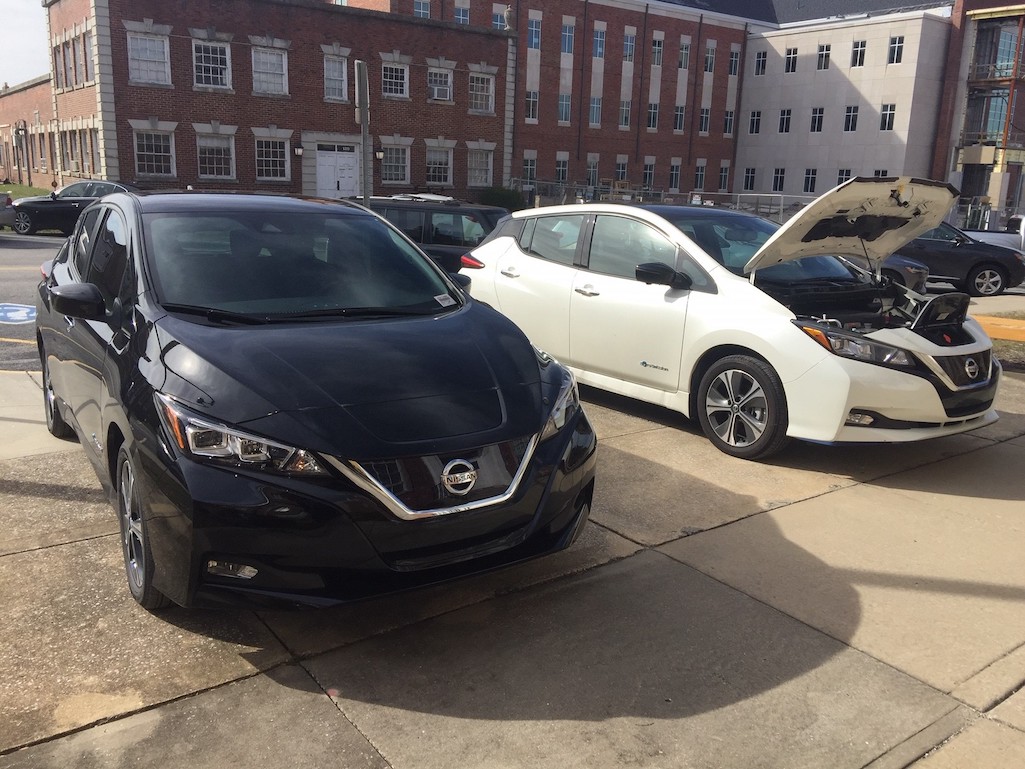 Rural areas cover 97% of U.S. land area but contain less than 20% of the population,
about 60 million people (2016 U.S. Census report). Transportation plays a critical
role in the social and economy development in rural areas since it provides access
to food, healthcare, educational opportunities, and employment, and increases rural
residents' ability to access recreation, entertainment, and other activities that
promote community engagement. Plug-in electric vehicles (PEVs) including plug-in hybrid
electric vehicles (PHEVs), extended range electric vehicles (EREVs) and battery electric
vehicles (BEVs), are promising solutions for rural mobility due to the lower fuel
cost and lower maintenance cost.
Rural areas cover 97% of U.S. land area but contain less than 20% of the population,
about 60 million people (2016 U.S. Census report). Transportation plays a critical
role in the social and economy development in rural areas since it provides access
to food, healthcare, educational opportunities, and employment, and increases rural
residents' ability to access recreation, entertainment, and other activities that
promote community engagement. Plug-in electric vehicles (PEVs) including plug-in hybrid
electric vehicles (PHEVs), extended range electric vehicles (EREVs) and battery electric
vehicles (BEVs), are promising solutions for rural mobility due to the lower fuel
cost and lower maintenance cost. - Challenges
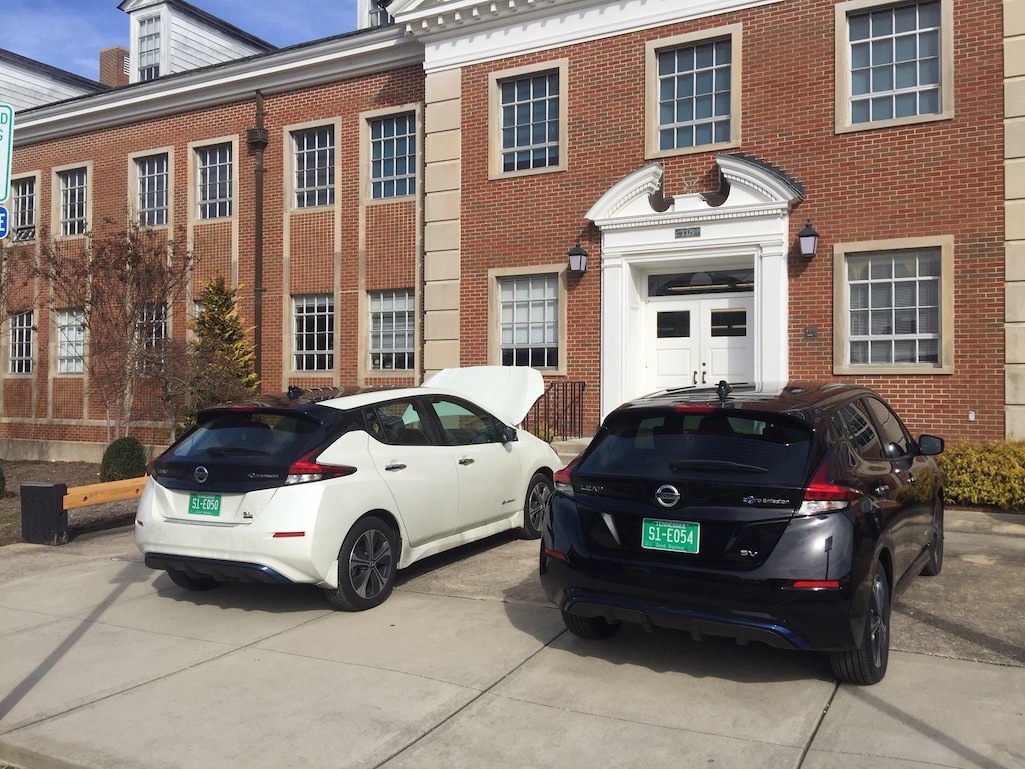 Rural areas in the U.S. are facing numerous challenges in adopting EVs and developing
EV charging station networks due to low population density, lack of charging infrastructures,
none or limited experience, and low consumer awareness. Upper Cumberland (UC) region
of Tennessee (as shown in the figure), is located on the western edge of the Appalachian
Mountains and composed of 14 counties which are identified as economically distressed,
at risk or transitional counties. The UC region has the potential to experience strong
economic growth, due to growth in manufacturing, tourism and agriculture. Widespread
adoption of EVs can potentially propel the economy growth in rural UC area by improving
the energy efficiency and affordability of transportation systems.
Rural areas in the U.S. are facing numerous challenges in adopting EVs and developing
EV charging station networks due to low population density, lack of charging infrastructures,
none or limited experience, and low consumer awareness. Upper Cumberland (UC) region
of Tennessee (as shown in the figure), is located on the western edge of the Appalachian
Mountains and composed of 14 counties which are identified as economically distressed,
at risk or transitional counties. The UC region has the potential to experience strong
economic growth, due to growth in manufacturing, tourism and agriculture. Widespread
adoption of EVs can potentially propel the economy growth in rural UC area by improving
the energy efficiency and affordability of transportation systems.
Economic Status of Upper Cumberland (UC) Region in Tennessee https://www.tn.gov/, accessed June, 2019.
- Project Objectives
This project will create a proof-of-concept demonstration testbed for EVs and charging infrastructures in UC region in Tennessee, which is a representative rural and economically distressed region, to provide the experience, research, demonstration and educational opportunities needed to address EV adoption issues. Comprehensive data will be collected and analyzed to report the operation cost, issues and performance of EV to help potential fleet owners and the public at large make informed decisions in EV adoption for rural areas before making significant financial investment.
- Broad Project Impacts
1) accelerating EV adoption and promoting EV awareness in rural vehicle fleets and communities; 2) reducing transportation cost, fossil fuel consumption and greenhouse gas and harmful emissions, and improving fuel diversity and public health in rural areas; 3) enabling smooth and long-distance intercity transportation of goods and people with rural EV charging infrastructure; 4) helping Tennessee’s corridor development initiatives and potentially boosting the economic development in the rural areas; 5) facilitating collaborations between universities, automotive OEM and suppliers, DOE designated clean city coalition, and national lab for EV research and development, outreach, and education.
- Project Team
- Tennessee Technological University (lead)
- The University of Texas at Austin
- Nissan North America
- Phoenix Motorcars
- East Tennessee Clean Fuels Coalition
- Seven States Power Corporation
- ChargePoint
- Upper Cumberland Human Resource Agency
- Oak Ridge National Laboratory
- Lyft
- Project Vehicles
In this project, the project team will deploy a small fleet of electric vehicles including three Nissan Leaf electric vehicles (with 40 kWh and 62 kWh battery packs), one plug-in hybrid pickup truck (F250 + XL Fleet hybrid conversion kit), and one all-electric shuttle bus.
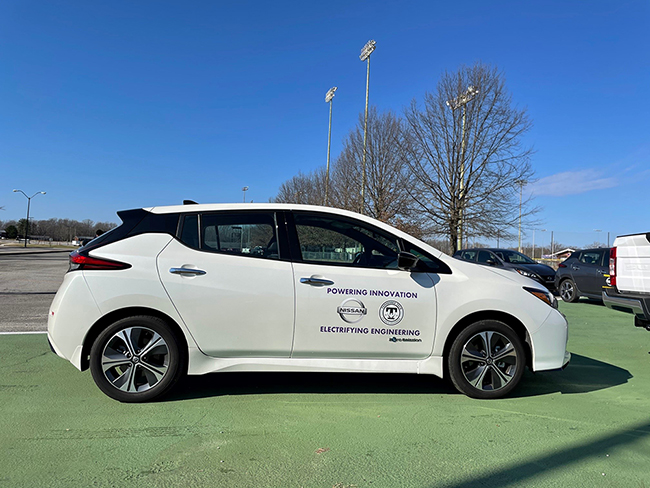
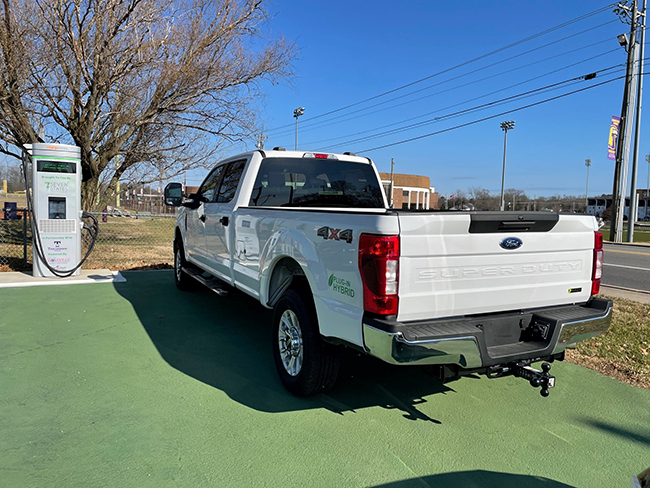
- EV Charging Station Network
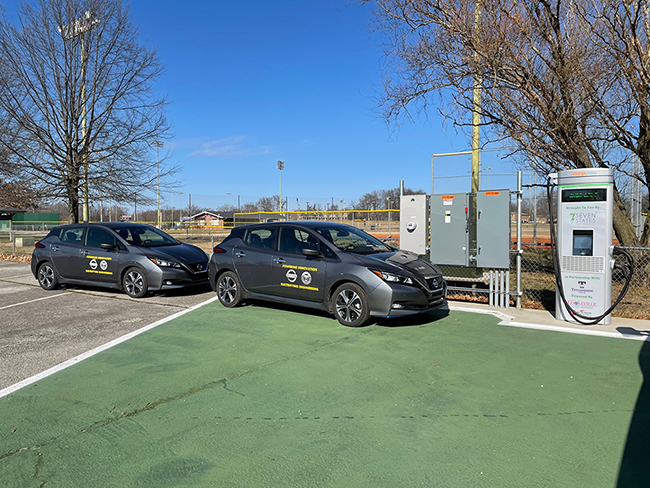 In this project, we have developed an EV charging station network in rural Upper Cumberland
region which includes one DC fast charging station (62.5 kW) and eight public level-2
dual-port charging stations to support EV operation in rural Upper Cumberland region.
In this project, we have developed an EV charging station network in rural Upper Cumberland
region which includes one DC fast charging station (62.5 kW) and eight public level-2
dual-port charging stations to support EV operation in rural Upper Cumberland region.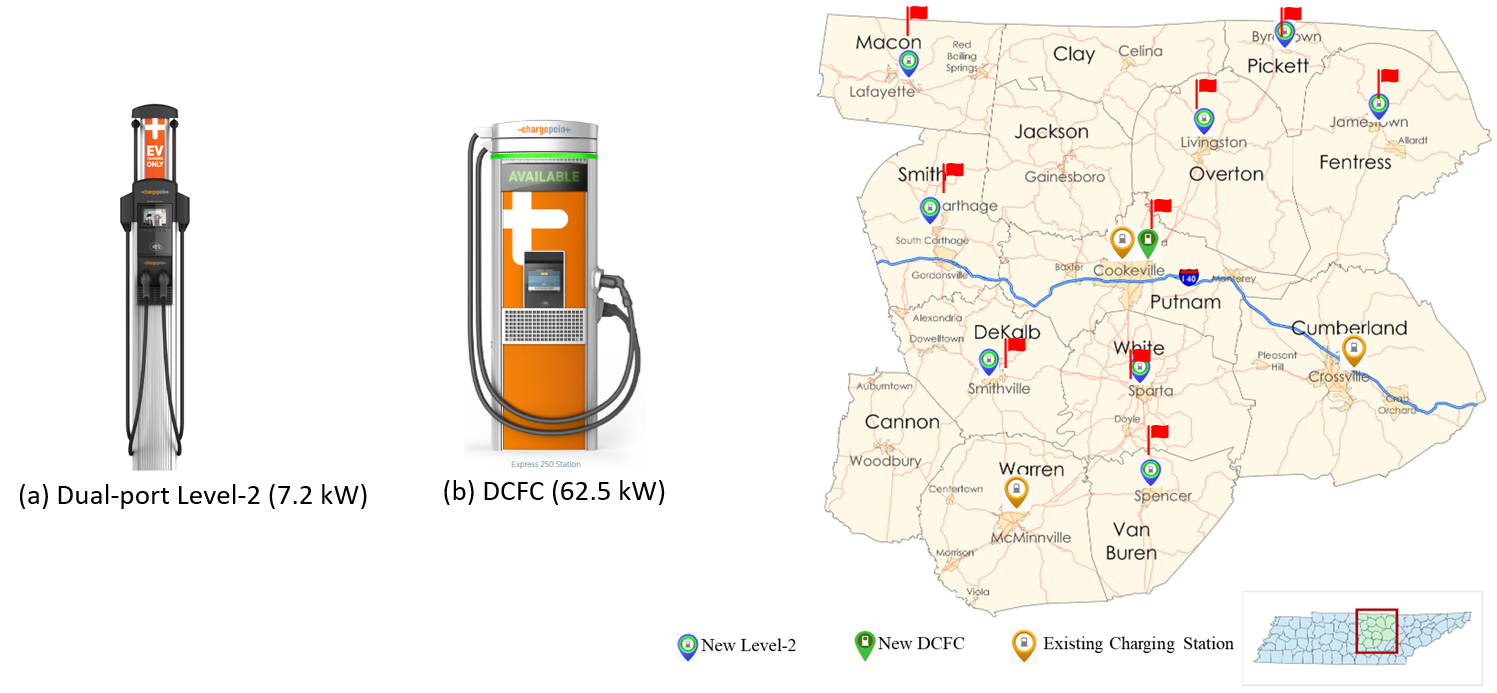
Call for Participants for EV Test Drive
Follow @TNTechRuralEVProject on Facebook
Contact: Pingen Chen, Ph.D.
Phone: (931)372-3310
Email: pchen@tntech.edu
Faculty Web Page
Lean More About Our Programs

